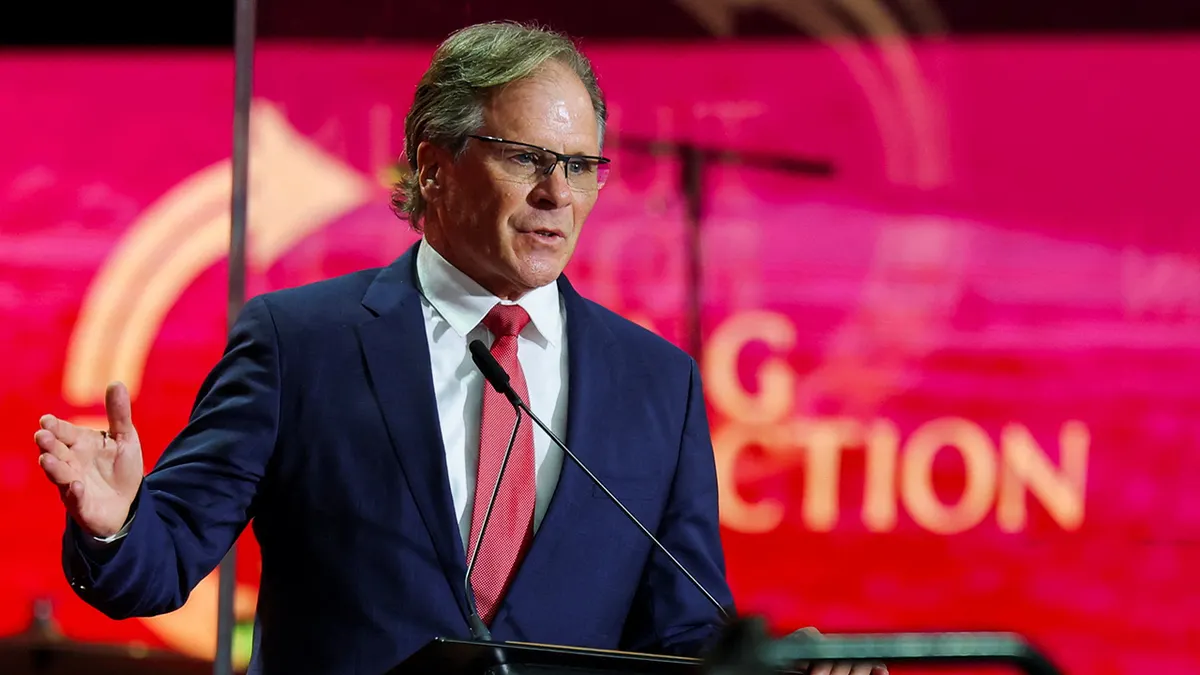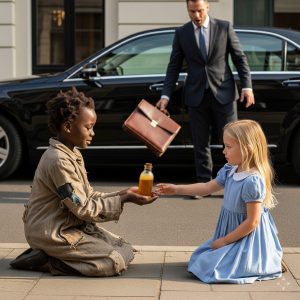The tragic assassination of conservative activist Charlie Kirk on September 10 has prompted an outpouring of grief, remembrance, and analysis. Now, new firsthand accounts from Kirk’s mentor, surgeon, and widow shed light on the final moments of the Turning Point USA co-founder, revealing a combination of tragedy and extraordinary circumstance that arguably saved lives on that fateful day.
“He Was Already Gone”
Christian radio host and Kirk’s longtime faith mentor, Frank Turek, was among those standing closest to the activist when the fatal shot rang out at Utah Valley University. Speaking at Kirk’s funeral on September 21 in State Farm Stadium, Glendale, Arizona, Turek recounted the harrowing scene with the solemnity and intimacy of someone who considered Kirk like a son.
“I was standing 25 feet from my beloved friend,” Turek began. “When that shot rang out, I took a step toward him, but his security team was on him immediately. And so Charlie, being like a son to me, I ran toward the security team and we ran to the SUV together.”
Turek confirmed what many had suspected from the chaotic scene: Kirk had already succumbed to the gunshot before reaching the hospital.
“No father would stand back and say, ‘No, you just take my son, take him, I’ll meet you at the hospital,’” Turek explained. “I want you to know that we did everything we could to save Charlie, but Charlie was already gone. His face was looking at mine, but he wasn’t looking at me. He was looking past me right into eternity.”
He added that Kirk experienced no pain in his final moments. “He died instantly. But we had to try to bring him back. We couldn’t save him. I want you to know Charlie right now is in heaven.”
Erika Kirk’s Testimony
Charlie’s widow, Erika Kirk, corroborated Turek’s account during her own emotional remarks at the funeral. The mother of their two children described the moment she saw her husband’s body in the hospital with heartbreaking clarity:
“I saw the wound that ended his life. I felt everything he would expect me to feel — shock, horror, and a level of heartache I didn’t even know existed. But there was something else too. Even in death, I could see the man that I love.”
Erika added that she noticed a faint smile on her husband’s lips. “That told me something important. It revealed to me a great mercy from God in this tragedy. When I saw that, it told me Charlie didn’t suffer. Even the doctor told me — it was something so instant that even if Charlie had been shot in the operating room itself, nothing could have been done. There was no pain, no fear, no agony.”
A Surgeon’s Insight: The Bullet That Didn’t Exit
Beyond personal testimonies, the physical circumstances of Kirk’s shooting have drawn attention from medical professionals. TPUSA spokesperson Andrew Kolvet shared details provided by the surgeon who operated on Kirk’s neck. Remarkably, the high-velocity .30-06 bolt Winchester rifle round that entered Kirk’s neck never exited, a fact that likely prevented multiple fatalities among those standing behind him on stage.
Kolvet recounted the surgeon’s assessment:
“I just spoke with the surgeon who worked on Charlie in the hospital. He said the bullet ‘absolutely should have gone through, which is very, very normal for a high-powered, high-velocity round. I’ve seen wounds from this caliber many times, and they always go through everything. This would have taken a moose or two down, an elk, etc.’ But it didn’t go through. Charlie’s body stopped it.”
The surgeon went on to describe the extraordinary resilience of Kirk’s neck: “His bone was so healthy and the density was so impressive that he’s like the man of steel. It should have just gone through and through. It likely would have killed those standing behind him too.”
The coroner reportedly found the bullet lodged just beneath Kirk’s skin — a detail that has been described as nothing short of miraculous. According to Kolvet, “Even in death, Charlie managed to save the lives of those around him.”
A Final Act of Protection
These combined accounts portray a grim yet remarkable scenario: Kirk’s body absorbed the force of the rifle round, shielding staff, students, and special guests from certain death. The combination of his instantaneous passing, the surgeon’s observations, and eyewitness accounts from those nearby paints a picture of Kirk as both a victim of violence and an unintentional protector.
Witnesses emphasized the surreal nature of the moment. Turek, struggling to hold back tears, said, “No one could have predicted this. But I want people to know that Charlie’s life — and even his death — had an impact beyond what anyone realized. He saved lives that day, just by being there.”
The Context of the Assassination
Kirk, 31, was shot during a Turning Point USA event at Utah Valley University. The alleged shooter, 22-year-old Tyler Robinson, has been detained by the FBI following the incident. Robinson faces charges including aggravated murder, obstruction of justice, and felony discharge of a firearm causing serious bodily injury. Prosecutors are reportedly planning to pursue the death penalty.
Reports indicate that Robinson was handed over by his father, although his grandmother has publicly insisted that authorities have the wrong individual. Surveillance images shared during the investigation depicted a slim, college-aged male wearing a cap and sunglasses, sparking intense online discussion and speculation.
Public Mourning and Reflection
The funeral, held on September 21, was attended by thousands, including political figures such as Donald Trump, Donald Trump Jr., and JD Vance, alongside prominent conservative commentators and supporters. Erika Kirk stood out not just for her emotional address but also for her symbolic wardrobe, wearing a white outfit in line with the memorial’s “Sunday Best — Red, White, or Blue” dress code. Her ensemble and the St. Michael pendant she wore served as visual emblems of faith, resilience, and honor.
Trump Jr., in a brief moment of levity, impersonated his father, eliciting laughter from the audience and even a thumbs-up from the president himself. Yet, amid the spectacle and political undertones, Erika’s account of seeing her husband’s body and witnessing the bullet lodged in his neck remained the most poignant reminder of the human cost behind the headlines.
The Aftermath and Ongoing Investigation
While Kirk’s death has sparked widespread mourning, it has also intensified scrutiny of security at public events and raised questions about the dangers faced by public figures. The surgeon’s description of the bullet’s trajectory highlights a rare and fortunate set of circumstances that prevented the tragedy from being even more catastrophic.
As authorities continue to investigate the circumstances surrounding the assassination, the stories shared by Turek, Erika Kirk, and medical personnel offer a narrative that intertwines grief, reverence, and the astonishing resilience of a man whose death — instant and tragic — may have inadvertently shielded others.
In the midst of national mourning, these testimonies provide both sorrow and a measure of awe: a reminder that, in rare and extraordinary ways, even in death, Charlie Kirk’s presence had a profound impact on the lives of those around him.

James Jenkins is a celebrated Pulitzer Prize-winning author whose work has reshaped the way readers think about social justice and human rights in America. Raised in Atlanta, Georgia, James grew up in a community that instilled in him both resilience and a strong sense of responsibility toward others. After studying political science and creative writing at Howard University, he worked as a journalist covering civil rights issues before dedicating himself fully to fiction. His novels are known for their sharp, empathetic portraits of marginalized communities and for weaving personal stories with broader political realities. Jenkins’s breakout novel, Shadows of Freedom, won national acclaim for its unflinching look at systemic inequality, while his more recent works explore themes of identity, resilience, and the fight for dignity in the face of oppression. Beyond his novels, James is an active public speaker, lecturing at universities and participating in nonprofit initiatives that support literacy and community empowerment. He believes that storytelling is a way to preserve history and inspire change. When not writing, James enjoys jazz music, mentoring young writers, and traveling with his family to explore cultures and stories around the world.









